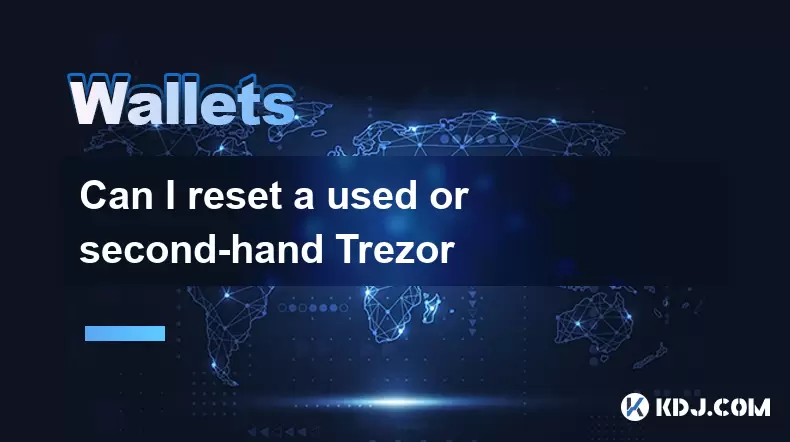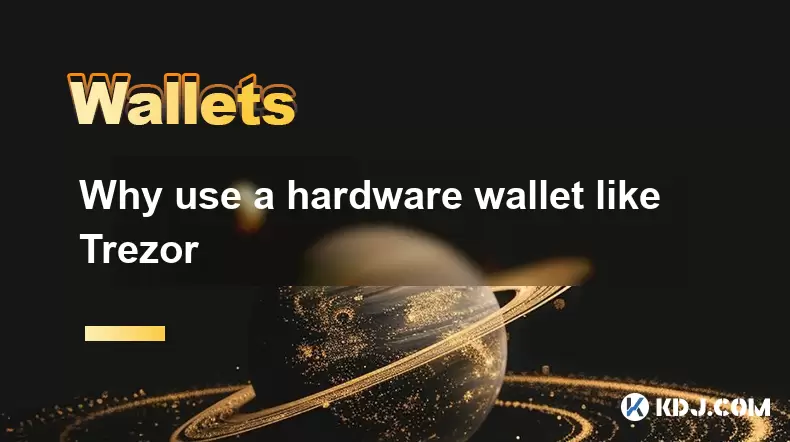-
 Bitcoin
Bitcoin $108,522.9936
0.51% -
 Ethereum
Ethereum $2,600.2119
2.25% -
 Tether USDt
Tether USDt $1.0001
0.00% -
 XRP
XRP $2.3065
1.88% -
 BNB
BNB $661.9093
0.34% -
 Solana
Solana $150.9961
1.40% -
 USDC
USDC $0.9999
0.00% -
 TRON
TRON $0.2877
0.21% -
 Dogecoin
Dogecoin $0.1708
1.78% -
 Cardano
Cardano $0.5863
1.70% -
 Hyperliquid
Hyperliquid $39.0718
4.52% -
 Bitcoin Cash
Bitcoin Cash $507.4600
2.09% -
 Sui
Sui $2.9070
2.06% -
 Chainlink
Chainlink $13.8666
4.64% -
 UNUS SED LEO
UNUS SED LEO $9.1277
0.82% -
 Stellar
Stellar $0.2624
5.86% -
 Avalanche
Avalanche $18.1961
2.40% -
 Shiba Inu
Shiba Inu $0.0...01182
1.77% -
 Toncoin
Toncoin $2.8141
2.42% -
 Hedera
Hedera $0.1611
3.70% -
 Litecoin
Litecoin $87.6537
1.88% -
 Monero
Monero $317.0356
0.02% -
 Polkadot
Polkadot $3.4327
2.63% -
 Dai
Dai $1.0000
-0.01% -
 Ethena USDe
Ethena USDe $1.0006
0.05% -
 Bitget Token
Bitget Token $4.3043
0.50% -
 Uniswap
Uniswap $7.6006
2.93% -
 Aave
Aave $293.0019
4.60% -
 Pepe
Pepe $0.0...01007
3.08% -
 Pi
Pi $0.4658
2.42%
Can my Ledger be hacked remotely?
Ledger hardware wallets use a secure element chip and offline storage to protect private keys, making remote hacking highly unlikely.
Jul 09, 2025 at 05:35 am

Understanding the Security Architecture of Ledger Devices
Ledger hardware wallets are designed with multiple layers of security to protect users' private keys from unauthorized access. These devices utilize a secure element chip, which is a tamper-resistant component commonly used in credit cards and passports. This chip ensures that private keys never leave the device, even during transaction signing. Additionally, Ledger uses an open-source operating system called BOLOS (Blockchain Open Ledger Operating System), which isolates apps and restricts communication between them, further enhancing security.
The physical construction of Ledger wallets includes protections against side-channel attacks and fault injection, which are advanced methods used by attackers to extract cryptographic secrets. Since private keys are stored offline, they are not exposed to network-based threats such as phishing or remote exploits. However, understanding how these mechanisms work is essential to assess whether a Ledger wallet can be compromised remotely.
What Does "Remote Hacking" Mean in the Context of Hardware Wallets?
When users ask whether their Ledger can be hacked remotely, they typically want to know if someone can gain access to their cryptocurrency without physically possessing the device. Remote hacking usually involves exploiting vulnerabilities through the internet or other wireless communication channels. In the case of Ledger Nano S or Nano X, these devices do not connect directly to the internet and do not run third-party code on the secure element itself.
Communication between the Ledger device and the computer occurs via USB or Bluetooth (in the case of Nano X). Even though this interaction could theoretically expose the device to some risks, the sensitive operations—like signing transactions—are performed entirely within the secure element. Any data sent to the device is verified and processed internally without exposing the private key. Therefore, unless there's a critical vulnerability in the firmware or the BOLOS system, remote exploitation remains highly improbable.
Potential Attack Vectors and Their Likelihood
While direct remote hacking of a Ledger device is extremely unlikely, it's important to consider indirect attack vectors that might compromise the overall security of your funds:
- Phishing attacks targeting recovery phrases: If a user enters their 24-word recovery phrase on a malicious website, the attacker can gain full control over all associated funds.
- Malware-infected computers: A compromised PC might trick the user into signing a malicious transaction without realizing it. However, the device itself does not get hacked—it simply signs what the user approves.
- Supply chain attacks: Although rare, if a device is intercepted before reaching the owner, there's a chance it could be tampered with. Purchasing from official sources mitigates this risk.
Ledger continuously updates its firmware to patch any discovered vulnerabilities. It also encourages responsible disclosure through its bug bounty program. As of now, no successful remote hack of a Ledger device has been documented in real-world conditions.
Steps to Secure Your Ledger Device Against Potential Threats
To ensure maximum protection for your Ledger wallet, follow these steps:
- Never share your recovery phrase with anyone, including individuals claiming to offer support.
- Only use Ledger Live through official download channels to avoid installing malware disguised as genuine software.
- Always verify transaction details on the Ledger’s screen before confirming—this prevents malicious apps from tricking you into signing unintended transactions.
- Keep your firmware updated by regularly checking for upgrades through Ledger Live.
- Use a PIN code with sufficient complexity and store it securely. Avoid reusing PINs across different services.
- Consider enabling two-factor authentication (2FA) for additional account protection where available.
These precautions help prevent both local and remote threats from compromising your assets.
Real-World Incidents and Ledger's Response
There have been no confirmed cases of Ledger devices being hacked remotely. However, Ledger has faced scrutiny over potential vulnerabilities in the past. For example, in 2020, the company experienced a data breach where customer information was leaked. While this did not involve the theft of funds, it highlighted the importance of protecting personal information and remaining vigilant against targeted phishing attempts.
In response, Ledger improved its internal processes and enhanced communication with users about best practices. The company also launched a public bug bounty program to identify and fix potential issues before they can be exploited. All known vulnerabilities have been addressed promptly, reinforcing the robustness of Ledger's security model.
Frequently Asked Questions
Q: Can someone steal my crypto if I plug my Ledger into a compromised computer?
A: While the Ledger device itself won't be infected, a compromised computer may show fake transaction details. Always double-check the transaction summary on the Ledger screen before approving.
Q: Is it safe to reuse a recovery phrase from another wallet in Ledger?
A: No, doing so can expose both wallets to risk. Each wallet should have a unique recovery phrase to ensure isolation of private keys.
Q: Are Ledger Live updates mandatory?
A: Yes, firmware updates often contain critical security patches. Ignoring them could leave your device vulnerable to known exploits.
Q: What should I do if I suspect my Ledger has been tampered with?
A: Stop using the device immediately and contact Ledger's official support team. Purchase a new one from trusted sources to ensure authenticity.
Disclaimer:info@kdj.com
The information provided is not trading advice. kdj.com does not assume any responsibility for any investments made based on the information provided in this article. Cryptocurrencies are highly volatile and it is highly recommended that you invest with caution after thorough research!
If you believe that the content used on this website infringes your copyright, please contact us immediately (info@kdj.com) and we will delete it promptly.
- MAGACOIN's Meme Coin Surge: The Next DOGECOIN?
- 2025-07-09 12:30:12
- Bitcoin Price: Is Stability Above $100K Setting Up a Monster Rally?
- 2025-07-09 12:30:12
- MAGACOIN FINANCE: TrustScore and the Future of Meme Coins
- 2025-07-09 12:35:12
- Crypto Whale's Portfolio: Decoding Token Stashes and Emerging Trends
- 2025-07-09 08:30:12
- Rare Coin, Lucky Find, Valuable Coin: Unearthing Treasures in Everyday Change
- 2025-07-09 08:30:12
- Coinbase, Altcoins, and the Empire State: A New Era for New York Crypto?
- 2025-07-09 09:30:12
Related knowledge

How to connect Trezor to Rabby wallet
Jul 09,2025 at 05:49am
What Is Trezor and Rabby Wallet?Trezor is a hardware wallet developed by SatoshiLabs that allows users to securely store their cryptocurrency assets o...

What happens if I forget my Trezor passphrase
Jul 09,2025 at 03:15am
Understanding the Role of a Trezor PassphraseIf you use a Trezor hardware wallet, you may have set up a passphrase as an extra layer of security beyon...

Can I reset a used or second-hand Trezor
Jul 09,2025 at 11:49am
Understanding the Reset Process for a Used or Second-Hand TrezorIf you have acquired a used or second-hand Trezor wallet, one of the first things you ...

How to safely store a Trezor recovery seed
Jul 09,2025 at 11:22am
Understanding the Importance of a Trezor Recovery SeedA Trezor recovery seed is a sequence of 12 or 24 words generated during the initial setup of you...

What to do if my Trezor screen is broken
Jul 09,2025 at 10:36am
Understanding the Impact of a Broken Trezor ScreenIf your Trezor screen is broken, it can significantly affect how you interact with your cryptocurren...

Why use a hardware wallet like Trezor
Jul 09,2025 at 11:00am
What Is a Hardware Wallet and Why It MattersA hardware wallet is a physical device designed to securely store the private keys of cryptocurrencies off...

How to connect Trezor to Rabby wallet
Jul 09,2025 at 05:49am
What Is Trezor and Rabby Wallet?Trezor is a hardware wallet developed by SatoshiLabs that allows users to securely store their cryptocurrency assets o...

What happens if I forget my Trezor passphrase
Jul 09,2025 at 03:15am
Understanding the Role of a Trezor PassphraseIf you use a Trezor hardware wallet, you may have set up a passphrase as an extra layer of security beyon...

Can I reset a used or second-hand Trezor
Jul 09,2025 at 11:49am
Understanding the Reset Process for a Used or Second-Hand TrezorIf you have acquired a used or second-hand Trezor wallet, one of the first things you ...

How to safely store a Trezor recovery seed
Jul 09,2025 at 11:22am
Understanding the Importance of a Trezor Recovery SeedA Trezor recovery seed is a sequence of 12 or 24 words generated during the initial setup of you...

What to do if my Trezor screen is broken
Jul 09,2025 at 10:36am
Understanding the Impact of a Broken Trezor ScreenIf your Trezor screen is broken, it can significantly affect how you interact with your cryptocurren...

Why use a hardware wallet like Trezor
Jul 09,2025 at 11:00am
What Is a Hardware Wallet and Why It MattersA hardware wallet is a physical device designed to securely store the private keys of cryptocurrencies off...
See all articles

























































































